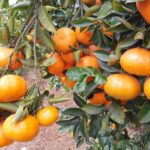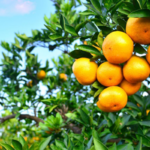Pectin rich fruits might aid against colon cancer, research shows

Brazilian Food Research Center (FoRC) researchers found that fruits high in pectins are linked to a reduction in chronic non-communicable diseases, modulation of the gut microbiota, and adjuvants to chemotherapy treatment of colon cancer.
Pectins are found in passion fruit, papayas, and citrus fruits, making up a large portion of their fiber.
The group focused on the effects of non-digestible water-soluble polysaccharides (bioactive polysaccharides), such as pectins, on humans by extracting pectin from the albedo of oranges and passion fruits. Then, researchers modified it in the laboratory to increase its biological activity.
By doing this, researchers were able to patent the process of extracting pectin from fruits such as papaya and chayote and the modification of pectin from passion fruit by-products is in the process of being filed.
The researchers conducted animal studies to demonstrate the correlation between modified pectins and increased biological activity.
“These preclinical studies can serve as a basis for the development of clinical trials [with modified pectins] as adjuvants to chemotherapy treatment of colon cancer or even as beneficial modulators of the intestinal microbiota,” João Paulo Fabi, professor at the School of Pharmaceutical Sciences of the University of São Paulo (FCF-USP) and coordinator of the project, told Agência FAPESP.













































